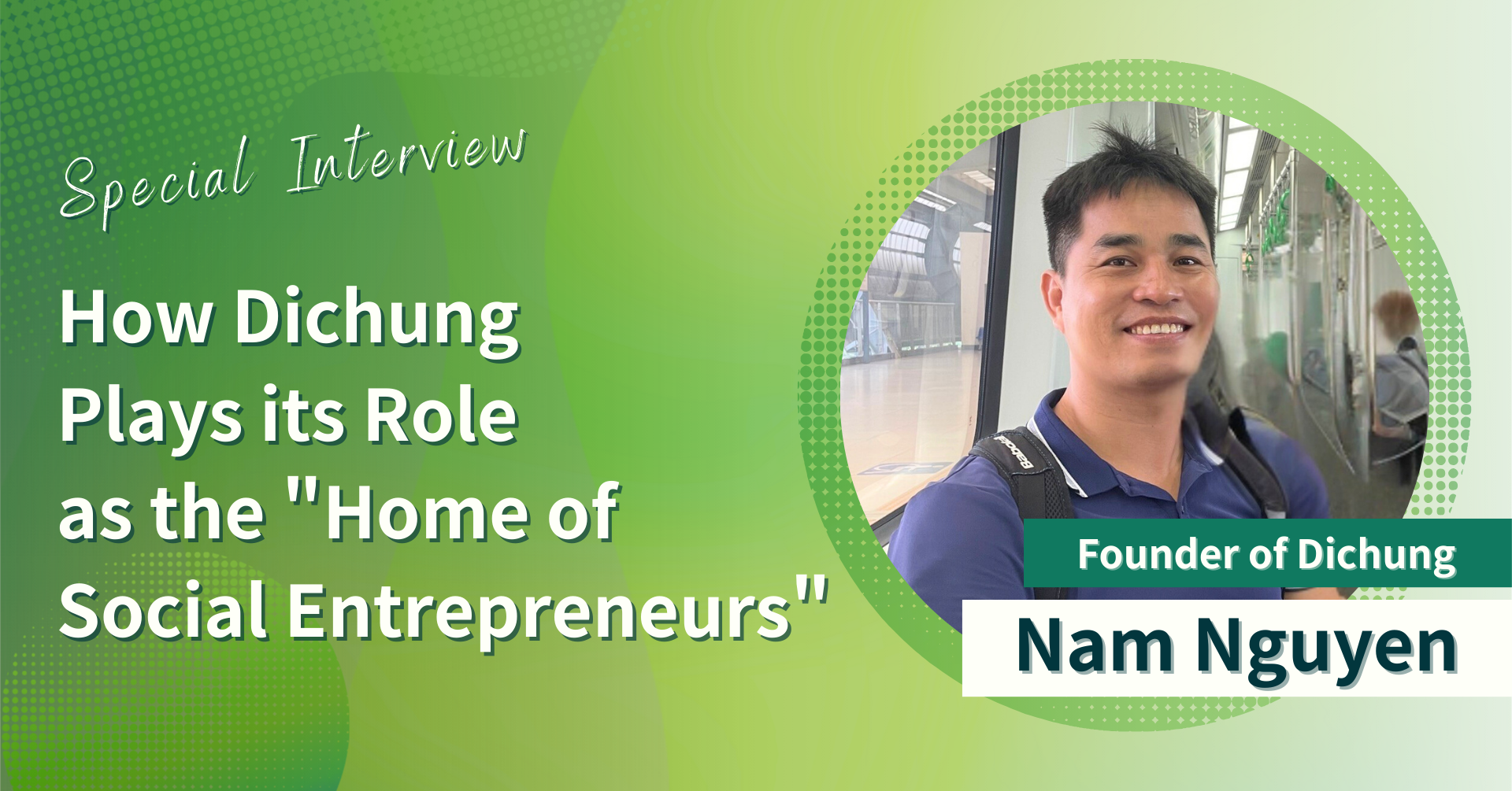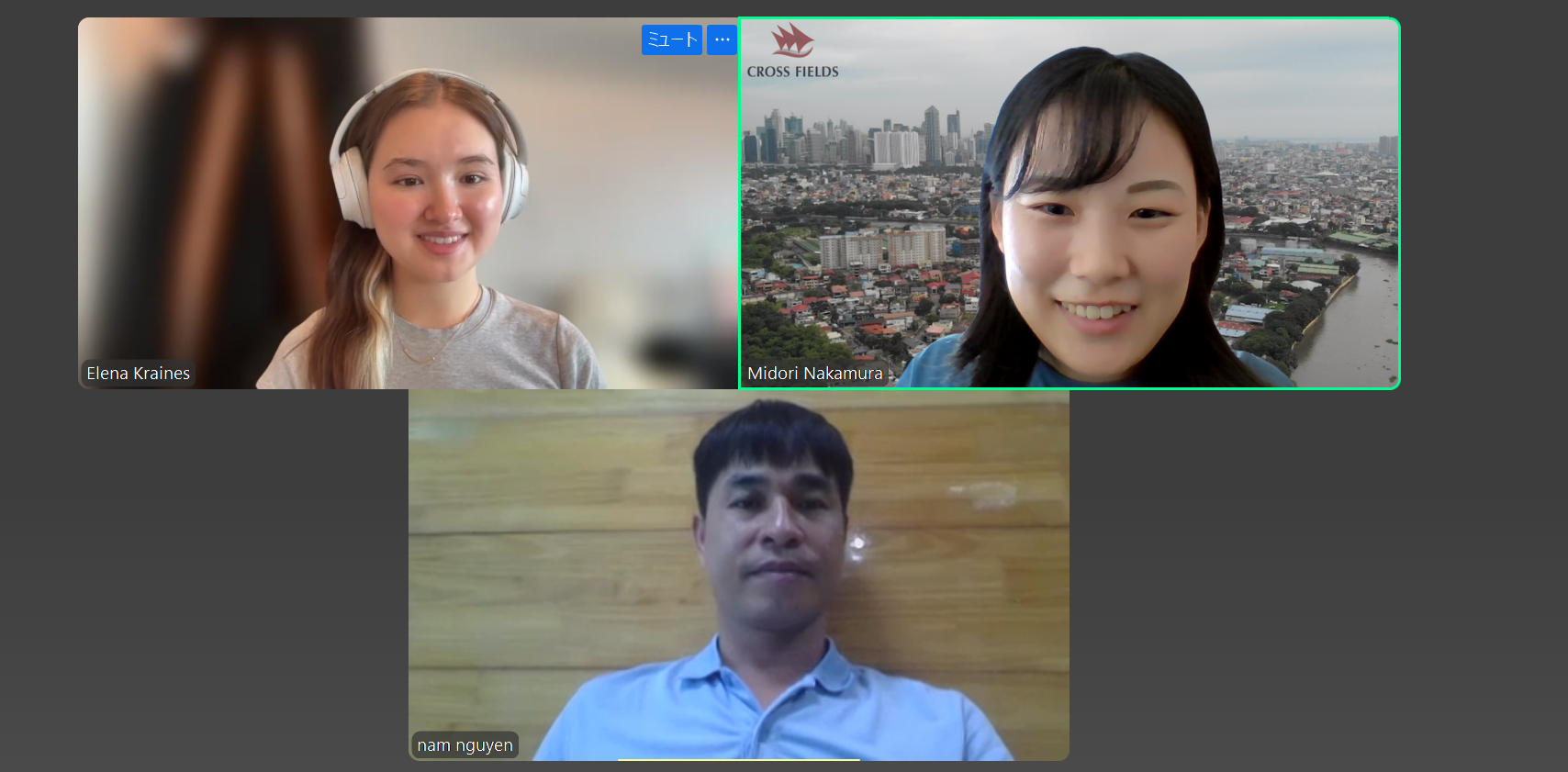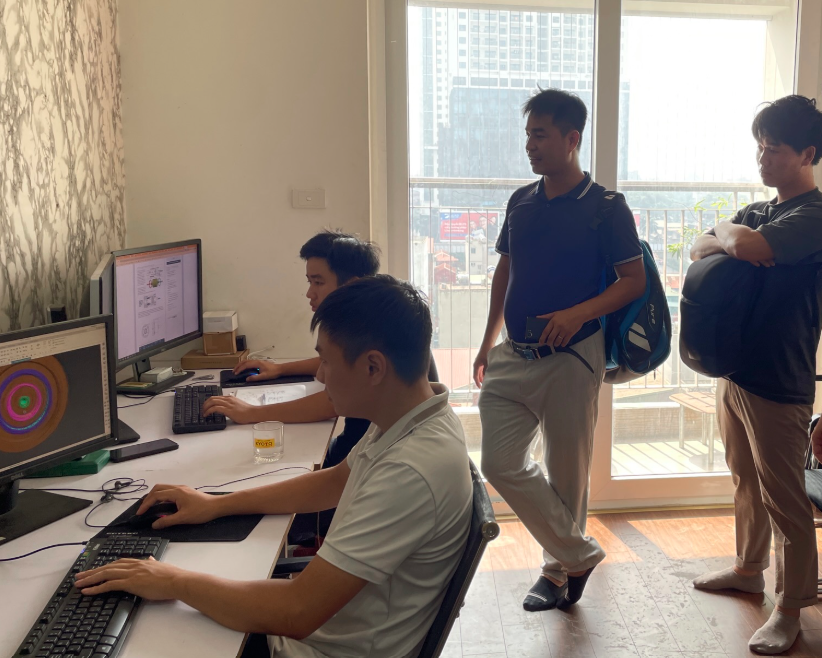
Dichung is a social startup based in Hanoi, Vietnam, that provides an online platform that connects people who need a ride with drivers who want to share or sell extra space on their vehicles. Their vision is to create a positive social and environmental impact by reducing pollution and traffic jams in urban areas of Vietnam. They have partnered with Cross Fields since 2013, and have accepted 8 volunteers in the Corporate Volunteer Program (CVP) thus far.
Cross Fields members had the opportunity to speak with Mr. Nam Nguyen, the Founder of Dichung about his ideas of leadership and collaborating with Cross Fields. (Written by Elena and Midori)

The Founding Story of Dichung
—Why did you start Dichung?
In 2014 – at that time, I was still working as an investment banker at an investment management firm – I used my car to travel on weekends to visit my parents. Since I had some space in my car, with mindset of financial guy who wants to maximize the asset utilization, I would like to share empty space with other people who were taking the same route. By sharing my car, I will have small money to cover gasoline cost while the passengers will travel in a more comfortable way than by bus or train. At the beginning, it wasn’t really a business idea, just a community project. I built an online marketplace so that people who had empty space on their cars could share with other people. This was the beginning idea of Dichung.
One of my “a-ha” moments was when I found the concept of a “social enterprise”. I learned that it is possible to make a social impact at the same time as doing business and making profit. That concept made me feel excited a lot because I was working in the finance industry at that time, which I felt was more like a zero-sum game, rather than creating good value for society. So, I decided to quit my job to start a social enterprise, applying my initial idea of ride-sharing.
 Cross Fields members interviewing Mr. Nguyen
Cross Fields members interviewing Mr. Nguyen The Impact of the Corporate Volunteering Program
—Why did you first decide to accept volunteers from Cross Fields?
We first learned about Cross Fields through an incubator program, when Dichung was still a new start-up at an early stage. We thought that your program would be good for us because we were lacking resources at that time – we appreciated the offer from Cross Fields to send volunteers to work in Dichung for a few months and support our activities.
—How did the volunteers make an impact on Dichung?
We accepted our first volunteer from Cross Fields in our very first stage of Dichung, when we only had four members working in a very small office. The volunteer was from a major Japanese infrastructure company, who helped us with technical support, such as installing software for our server. We consider him one of the first staff members of Dichung, besides the founders.
After that, for about the first four years, we mainly accepted technically skilled volunteers. They had skills such as programming and designing, which helped us build a good infrastructure for our technology and our online platform. Later on, we’ve mainly been accepting volunteers with strong business backgrounds, who supported us in terms of business development, such as improving our customer support process. They enabled us to achieve greater scale in our business.
Looking back, all of the volunteers, with their diverse skill sets, made precious contributions to sustaining and growing our business. In terms of their impact on society, they’ve contributed to our business of coupling passengers for ride-sharing, saving CO2 emissions for society as well as saving money for the passengers.
 Dichung team working at their office
Dichung team working at their officeThe Key Factor of Leadership – Strong Internal Motivation and Ownership
—Many volunteers participate in this program because they want to become leaders who can solve social issues. What do you think is important in becoming such a leader?
Through the experience of working with a total of eight volunteers, I believe that the most impactful volunteer is someone who has a strong internal motivation to make an impact – not just participating because he or she was told to do so by their company.
This is because in a startup like ours, we normally don’t have good resources or processes, and our product is growing day by day. For the volunteer to make the most out of this program, they need to have strong ownership of what they want to do. What we do is just provide them the right environment so they can perform and achieve their goals. So, I believe that the key factor is ownership and truly wanting the most impact.
For example, one volunteer I recall was one who helped us with customer support. He had a strong motivation to do something good for society. He took initiative, not only to do the work assigned by Dichung or his company, but also work on extra projects that would contribute more to society at that time. I really appreciated his motivation to go beyond.
(Part two of this article can be accessed here)
~Interested in hosting volunteers? ~
Thank you for reading this article! If your organization is interested in hosting volunteers or activities of Cross Fields, please contact us from this page.
If you want to know more about Dichung, please visit here.